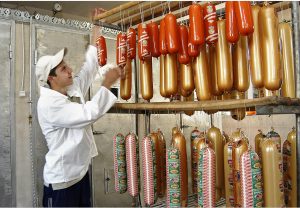Capitalists have weaponised Investor-state dispute settlement (ISDS) tribunals to suppress national governments and democracy in the neo-liberal system
Norbert Häring is a financial journalist at the German daily business newspaper Handelsblatt, blogger, and an award-winning author of popular books on economics and finance.
Cross-posted from Norbert Häring’s blog Money and More
 Photo: Narek75
Photo: Narek75
Investor State Dispute Settlement, those special tribunals which foreign investors can use to sue a host government for alleged infringement of their rights, have drawn criticism for being one-side. Investors can sue governments, but not vice versa. Arbitration counsel Juan Carlos Boué* describes a case which drives this to the extreme: an investor drags a government in front of a tribunal because the government is suing the investor in the regular court.
“Someone once said that satire died in 1973, when Henry Kissinger received the Nobel Peace Prize. However, a recent case brought before a World Bank arbitration tribunal suggests that satire might have only been in a coma all this time, and now 2020 has come around to deal it the killer blow.”
The case, brought under the Netherlands-Nigeria bilateral investment treaty, pits Eni (that quintessentially “Dutch” company, headquartered in Milan, and in which the Italian state still owns a 30.303% golden share) against Nigeria. The dispute relates to a petroleum licence which Eni and Shell bought in 2011, for 1.3 billion dollars.
This transaction is at the centre of ongoing Italian criminal proceedings involving Shell and Eni (and a number of current and former executives of theirs), in which it is alleged that the companies went ahead with the transaction despite knowing that most of this money would be dissipated in bribes to Nigerian politicians (Shell is being investigated by Dutch prosecutors on similar grounds). Jointly being heard with the criminal trial is a 1 billion dollar civil claim, which Nigeria has brought against ENI, based on the same allegations.
Now, in the World Bank arbitration, Eni is claiming that this lawsuit – financed by a US litigation funding firm – forms part of a litigation campaign that Nigeria is waging against it in many countries and which, as well as being based on unfounded charges of corruption, somehow violates international law.
Explaining the minutiae of Eni’s claims will not say much to the layperson, who might instead struggle to understand just how a country can breach treaty obligations by resorting to the courts of other countries to seek redress for corrupt practices being independently investigated by the judicial authorities of those countries.
Indeed, the fundamental premise underlying the case casts the international arbitration game in such an unflattering light that a layperson might wonder why a country like Nigeria (or any other one which might find itself on the dock, for that matter) would want to continue playing it at all.
World Bank arbitration proceedings can be said to have become akin to the proverbial sausage factory, where prospective customers can see exactly what is going into the sausages and how the sausages are made. In such circumstances, people tend to go off sausages.
*Juan Carlos Boué is a Mexican national and London-based counsel in the international corporate and arbitration practice of the law firm Curtis, Mallet-Prevost, Colt & Mosle.
We have begun our Fundraising Campaign 2020. Help BRAVE NEW EUROPE bring authors at the cutting edge of progressive thought together with activists and others with articles like this. If you would like to support our work and want to see more writing free of state or corporate media bias and free of charge, please donate here.



Be the first to comment